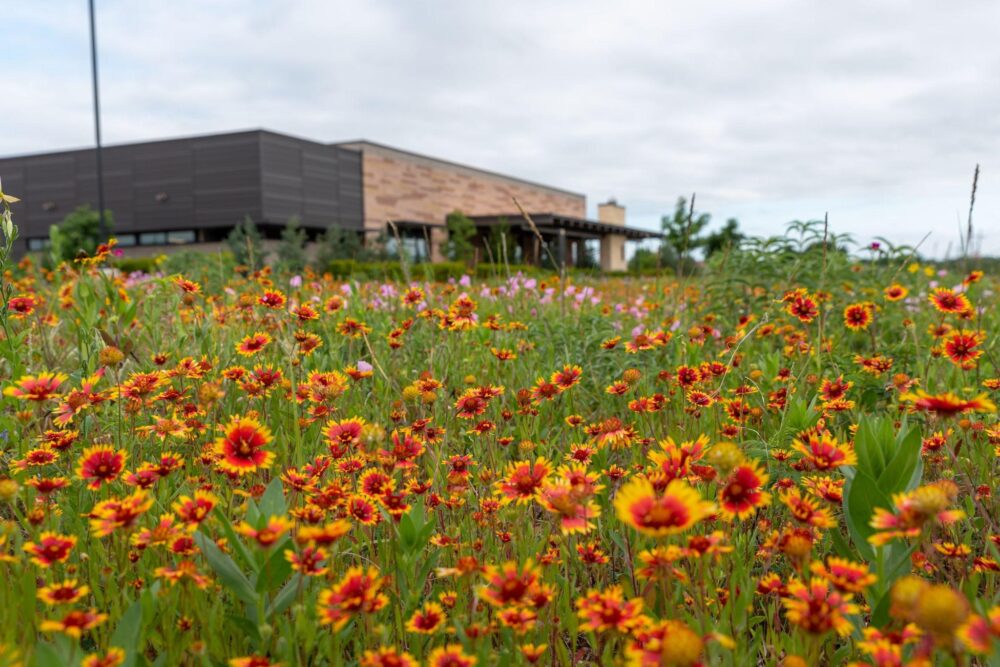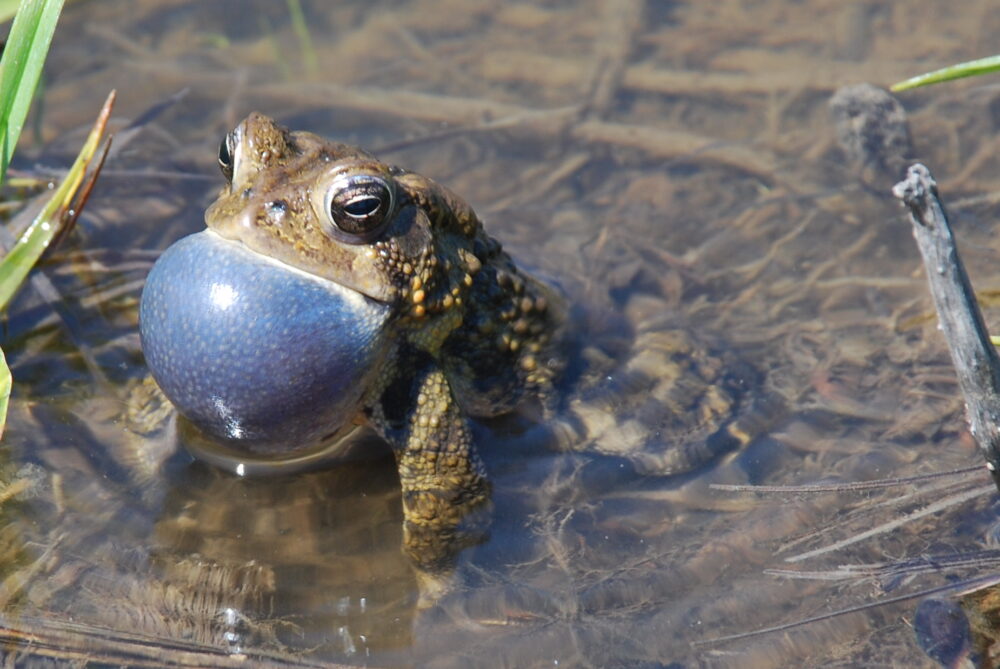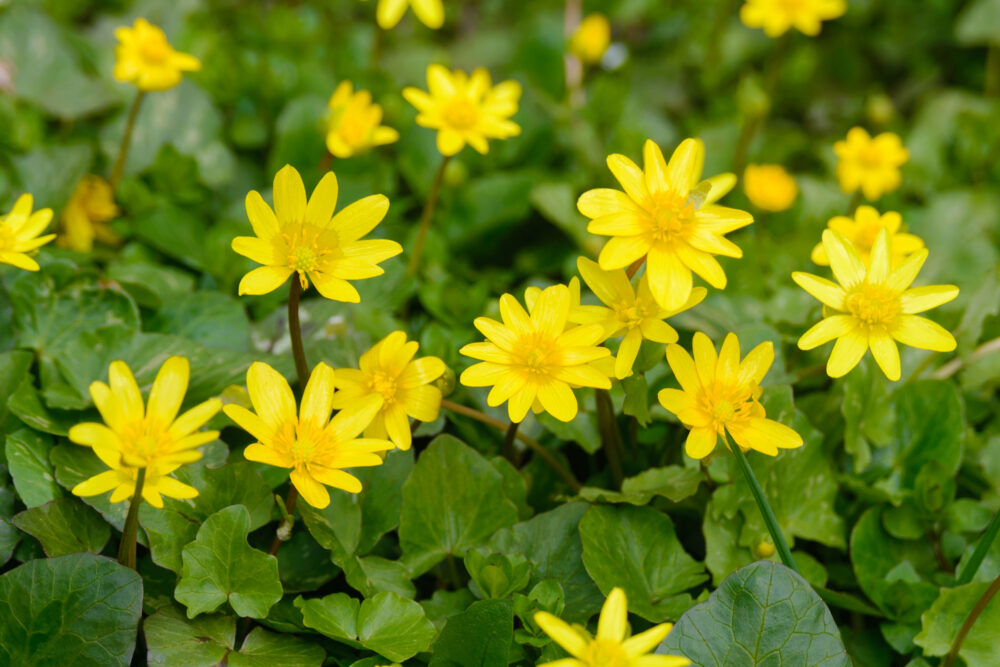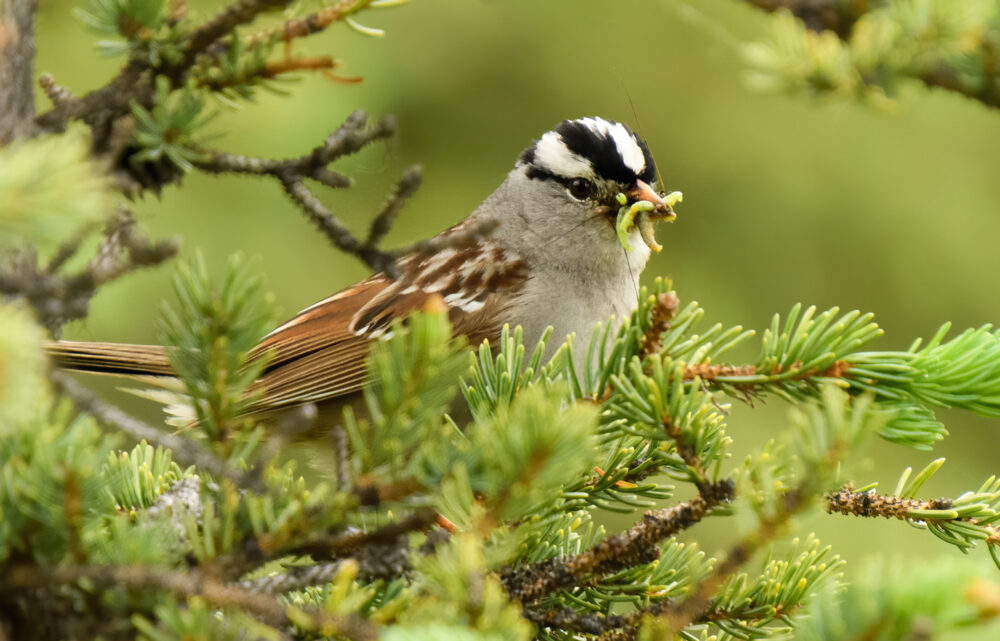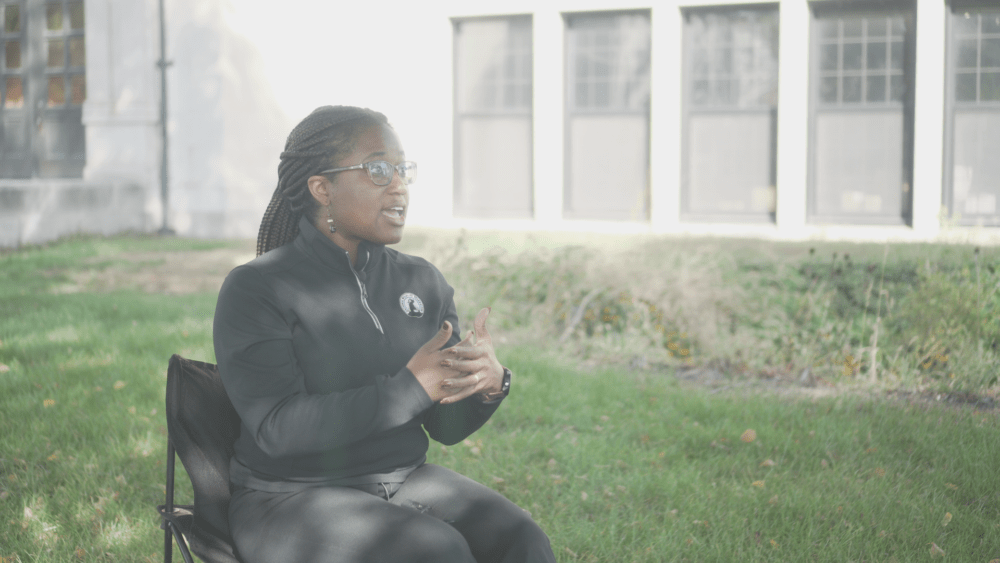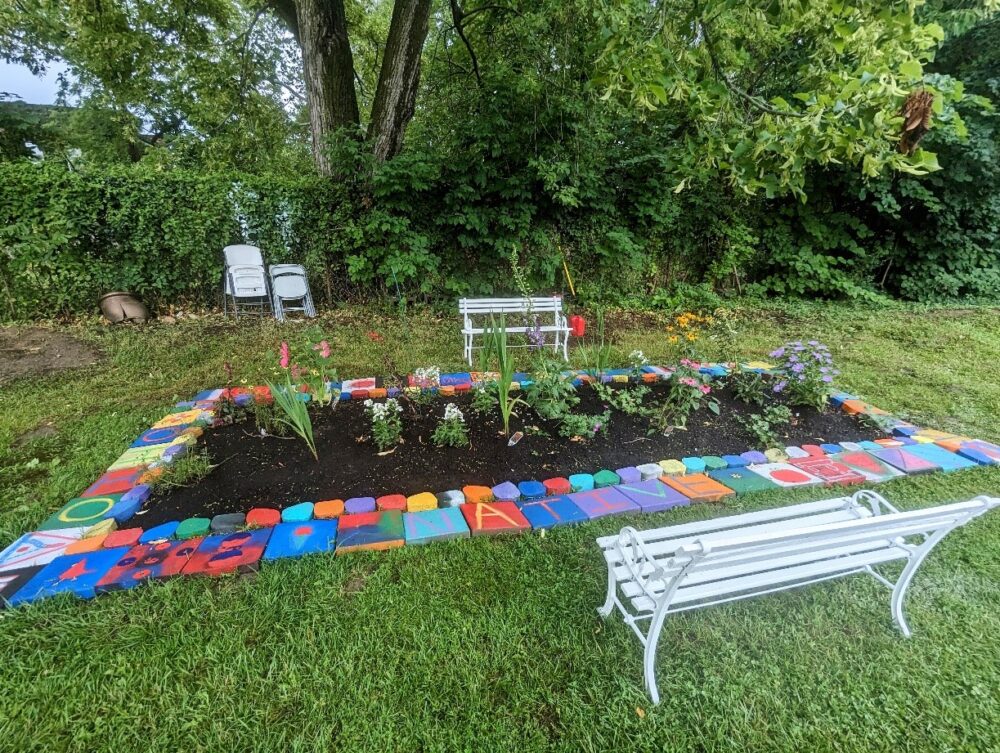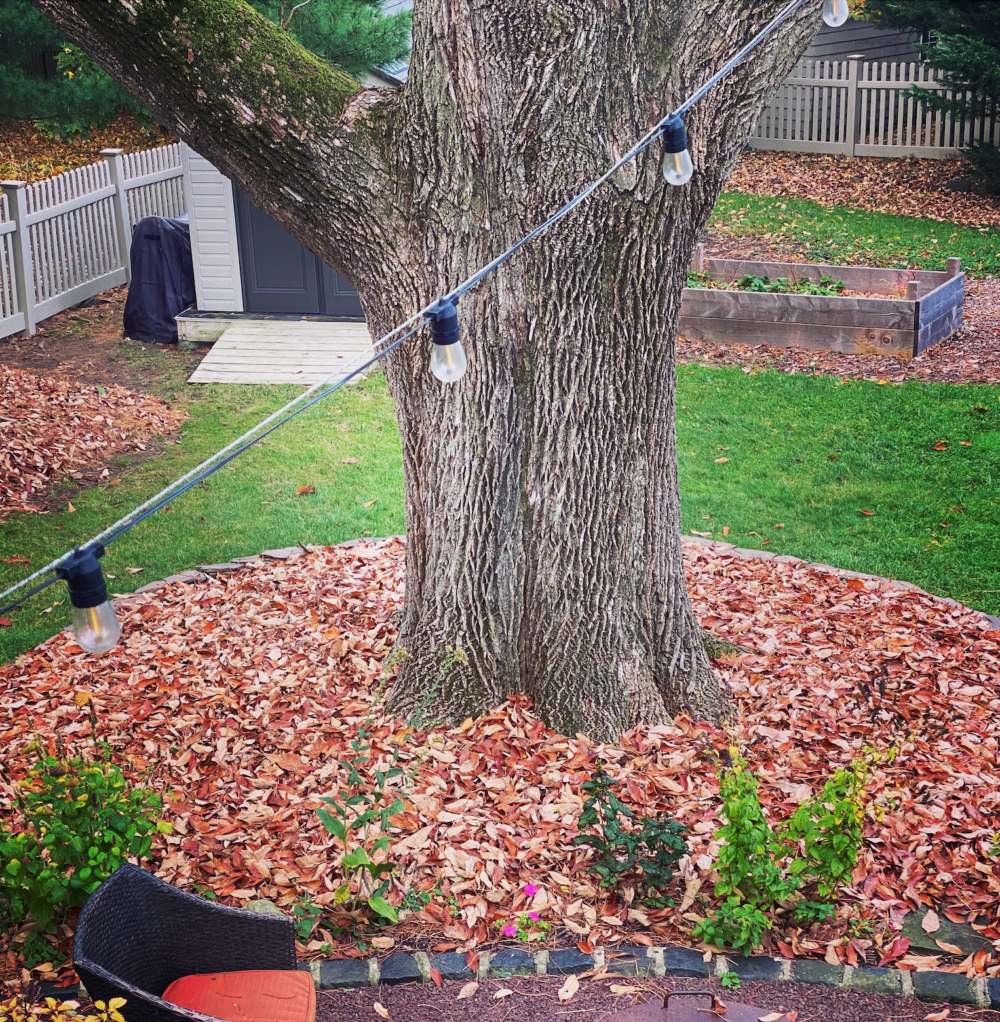We have much more to do and your continued support is needed now more than ever.
Planting Spirituality in Pollinator Gardens
Federal funding for the Delaware watershed takes root in Sacred Grounds Wilmington
As another growing season comes to an end, ten new native pollinator gardens have taken root on the grounds of faith communities in Wilmington, DE. Though each garden may be small in size, they are all part of a much larger conservation system…one that has been decades in the making.
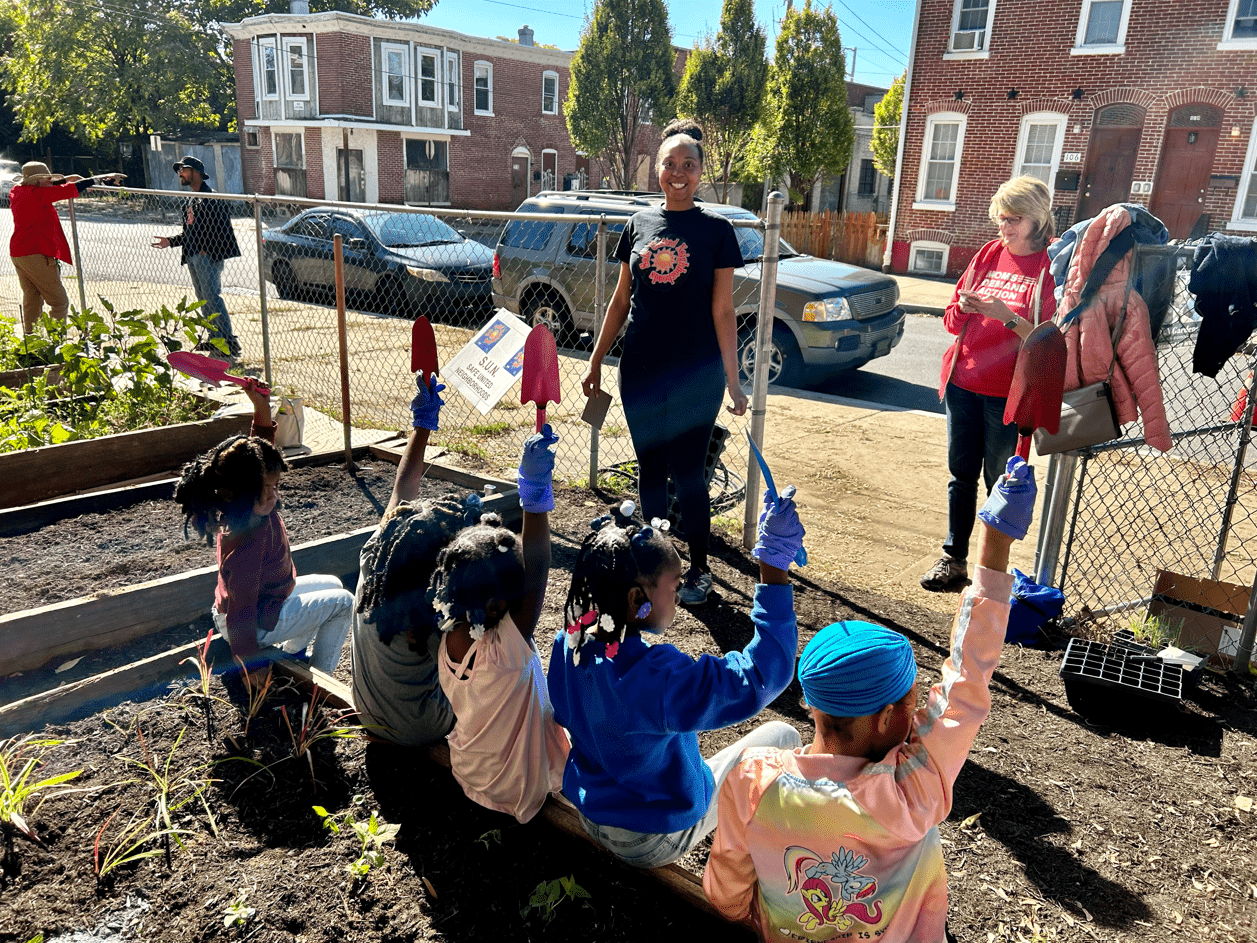
Credit: Shweta Arya
Sacred Grounds is a National Wildlife Federation (NWF) program that spread its roots to Wilmington this year. As a part of Sacred Grounds Wilmington, ten congregations received mini-grants to install native pollinator gardens on their grounds. Another ten will receive funding next year.
Growing Stewardship and Spirituality in Our Gardens
A large part of Sacred Grounds is its intention to weave stewardship of spirit and stewardship of land together. In order to receive a Sacred Grounds designation, congregations are required to engage their community in nature-based learning. Their engagement builds a powerful connection between faith and the environment.
“In spiritual practice, we become grounded in the knowledge of our connectedness to the space we inhabit, the communities of which we are a part, and the natural cycles of life within which we exist,” says Rev. Shada Sullivan of the Church of the Holy City, part of a small pilot of Sacred Grounds Wilmington in 2020. “And as we come to know our connectedness, we grow in compassion for those around us.”
According to Sullivan, the importance of connection was made painfully clear during the past few years: “If we have learned anything from this pandemic, it is that the church is not a building, and that spiritual community reaches beyond church walls. It is in this vein that we attempt to extend sacred space beyond our structures, in order to increase awareness of the possibility that to revere, care for, and to find our place in nature, is an important form of worship.”
The Conservation Seed Sprouts in the Delaware
Sacred Grounds Wilmington has received federal funding for the protection of the Delaware River as a part of the Delaware Watershed Conservation Fund, provided by the National Fish and Wildlife Foundation and the U.S. Fish and Wildlife Service.
“The federal funding in Wilmington is bringing resources to communities that have been historically under-resourced while also encountering environmental injustices in some areas,” says Kerry Wilson, Habitat Outreach Manager for Delaware Nature Society. “This funding not only brings funds but also allows us to build partnerships with communities that we may not have had the resources to work with in the past.”
With the federal funds, Sacred Grounds Wilmington partners take their dedication to environmental justice seriously. As a part of its mission, program leaders intentionally prioritized frontline communities and congregations in heavily urbanized areas. This decision is part of the NWF’s long-term commitment to diversity and environmental justice.
The Sacred Grounds program in Wilmington is unique for its community partners and leaders. Alongside NWF, Delaware Interfaith Power & Light (DeIPL), Delaware Nature Society (DNS), and Delaware Center for Horticulture (DCH) are providing support to communities in implementing their gardens and engaging their community members.
That support comes in various forms, from community workshops, to digital resources, to on-site installation assistance.
Additional programmatic support comes from the Delaware River Climate Corps (DRCC). DRCC, consisting of graduates of Branches to Chances, DCH’s horticultural workforce development program, is in its pilot year. In addition to managing the center’s public landscapes work, members of the 2022 class have assisted congregations at three Sacred Grounds Wilmington plantings.
Healthy Habitats, Healthy Communities
Working together, community members, program leaders, and DRCC have accomplished something great—ten new native pollinator gardens planted in the ground.
Individually, these gardens create wildlife habitat, reduce flooding risk, and provide peaceful community meeting places.
Together, they harness an even greater power—a hyperlocal pollinator corridor that allows native pollinators safe passage through the city of Wilmington.
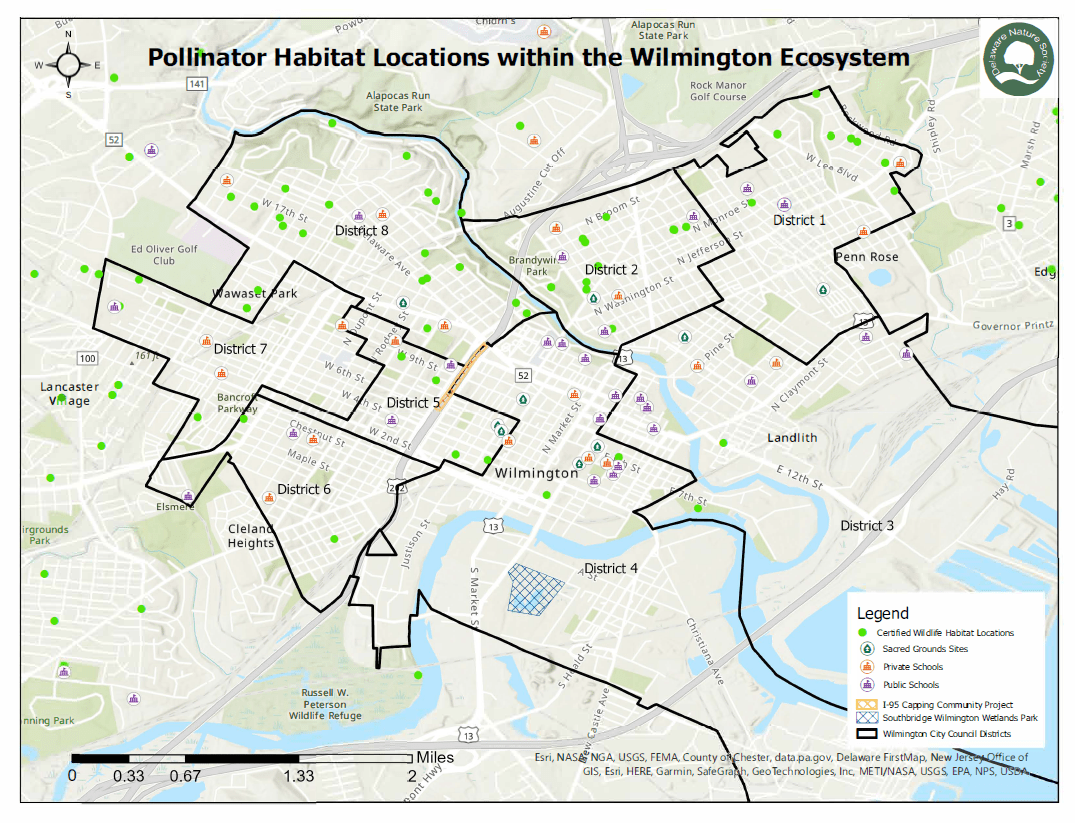
Creating a corridor is vital to native pollinators’ survival. Native pollinators and native plants have matured together over thousands of years. The pollinators form strong evolutionary bonds to the plants, and most require specific plant species in order to survive—to nest, to feed, and/or to lay their eggs.
For migratory pollinators like the monarch butterfly, pollinator corridors become rest stops along their migratory highways, providing much-needed shelter during their travels. Most lawns are heavily manicured, forming roads of unusable monoculture without a single stop for pollinators, so intentional corridors like Sacred Grounds Wilmington give native pollinators the opportunity to thrive in urban settings.
Additionally, the pollinator gardens provide stormwater benefits. Native plants have strong root systems. These roots improve stormwater systems in three distinct ways—they absorb water, filter water, and stabilize soil. Because of these improvements, native plants reduce flooding and erosion risk and reduce the pollutants and toxins that are added to the watershed. All these benefits contribute to creating a stronger, healthier Wilmington ecosystem.
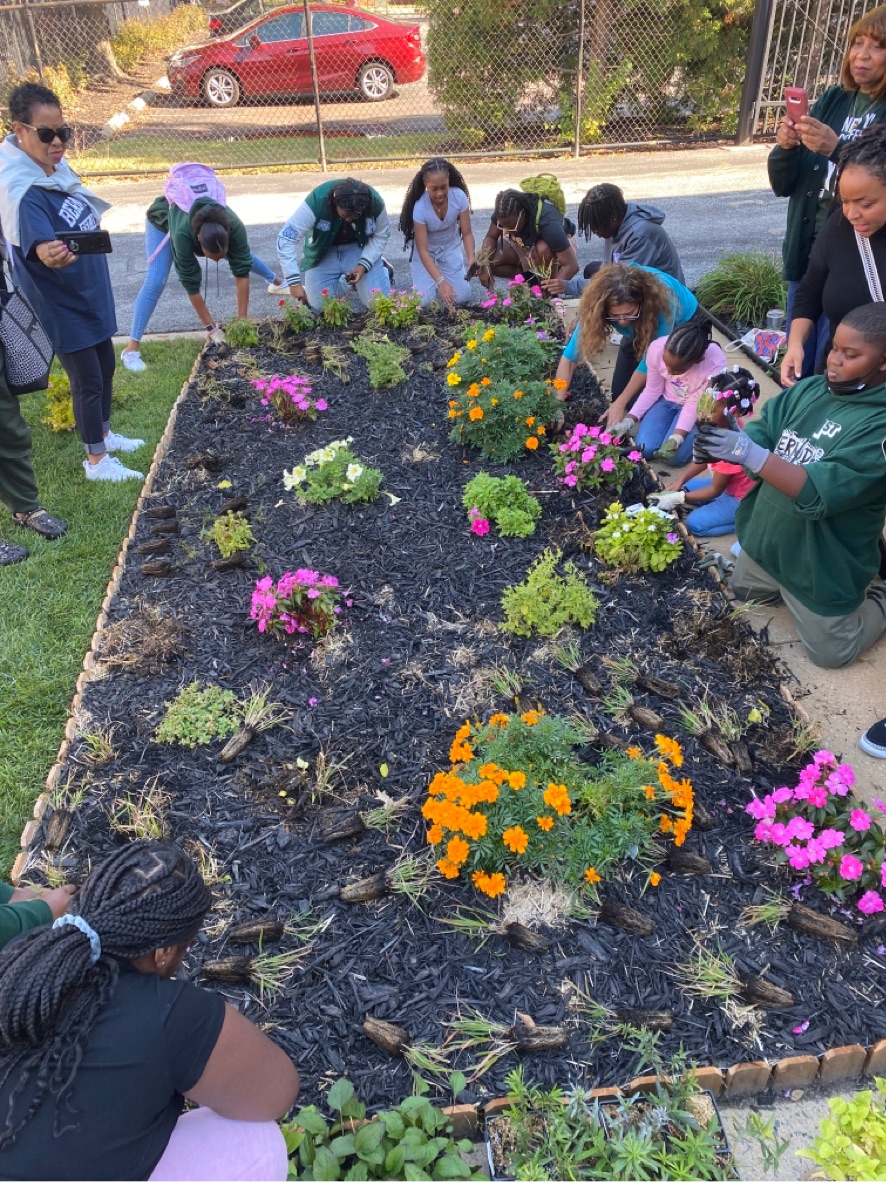
Congregation and community members also benefit directly from their gardens—physically, mentally, and spiritually.
Rev. Jason Churchill of St. Stephen’s Lutheran Church, also part of the Sacred Grounds Wilmington pilot in 2020, has noticed that Sacred Grounds has positively shaped the spirituality of the church. “The sacred grounds project at St. Stephen’s has us looking at [our] grounds […] in a new way—as a way not just of potential beauty—but as a way of restoration.”
He adds, “We have a banner out front that reads, ‘feed my sheep.’ Through the initiative […] we are learning that feeding God’s sheep includes all of God’s creation. […] We will also be feeding insects and small wildlife. Our little part of giving back to God in our own way on 13th and Broom.”
Another positive benefit to congregations is knowledge and empowerment. One of the key elements of the program is required community engagement. “When we talk about native plants we are really talking about people,” Kerry Wilson of DNS explains. By engaging community members, congregations can combine faith and stewardship in powerful, impactful ways.
The ten gardens installed this fall and the stewards they will create are just the beginning for Wilmington and for the watershed, as federal funding allocated to the Delaware River watershed turns from seed to shoot. The funding will help protect hundreds of native species and filter stormwater going to the Delaware River, benefiting the ecosystem as a whole.
Talking about the future of the program, Wilson envisions a future full of local collaboration. “I hope the implementation of community conservation continues to grow throughout the state of Delaware and throughout the watershed. Conservation efforts are very much dependent upon community members working together alongside local partnering agencies if we want to have a lasting positive impact in our ecosystems.”
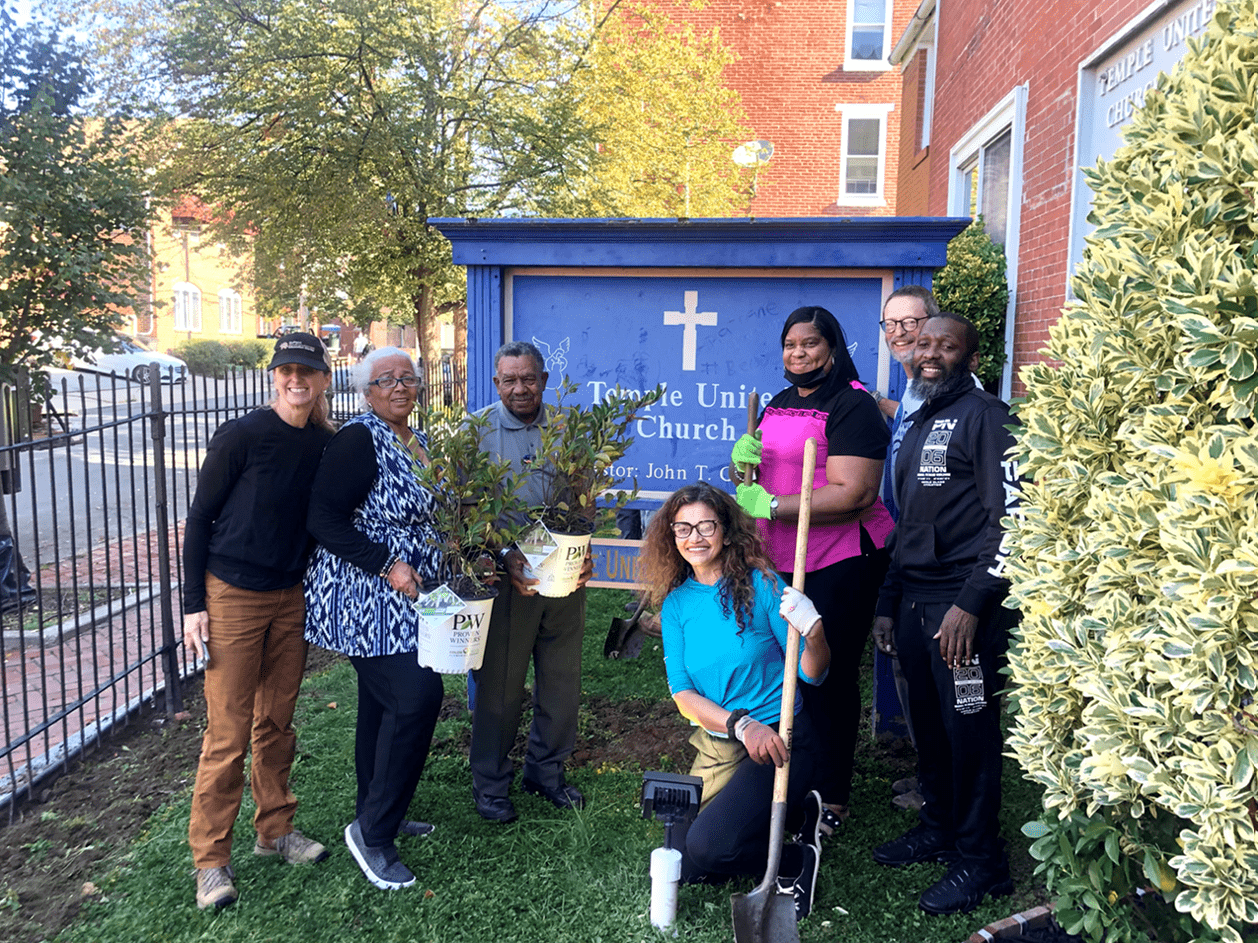
When asked if she had anything else to share, Wilson cited an African proverb that feels connected to this project: “If you want to go fast, go alone, if you want to go far, go together.” “If we want to create change in our ecosystems for wildlife and people, we need to work together to build stewardship through a sustained practice of community engagement,” she says.
In the future, NWF hopes to continue to add to the system of Delaware River protection by expanding its efforts in Wilmington, building a future that best serves people, wildlife, and ecosystems alike.
If you are a member of a faith organization in or around the city of Wilmington, Delaware, and you are interested in the Sacred Grounds program, contact Natalie Cohen for more information.











